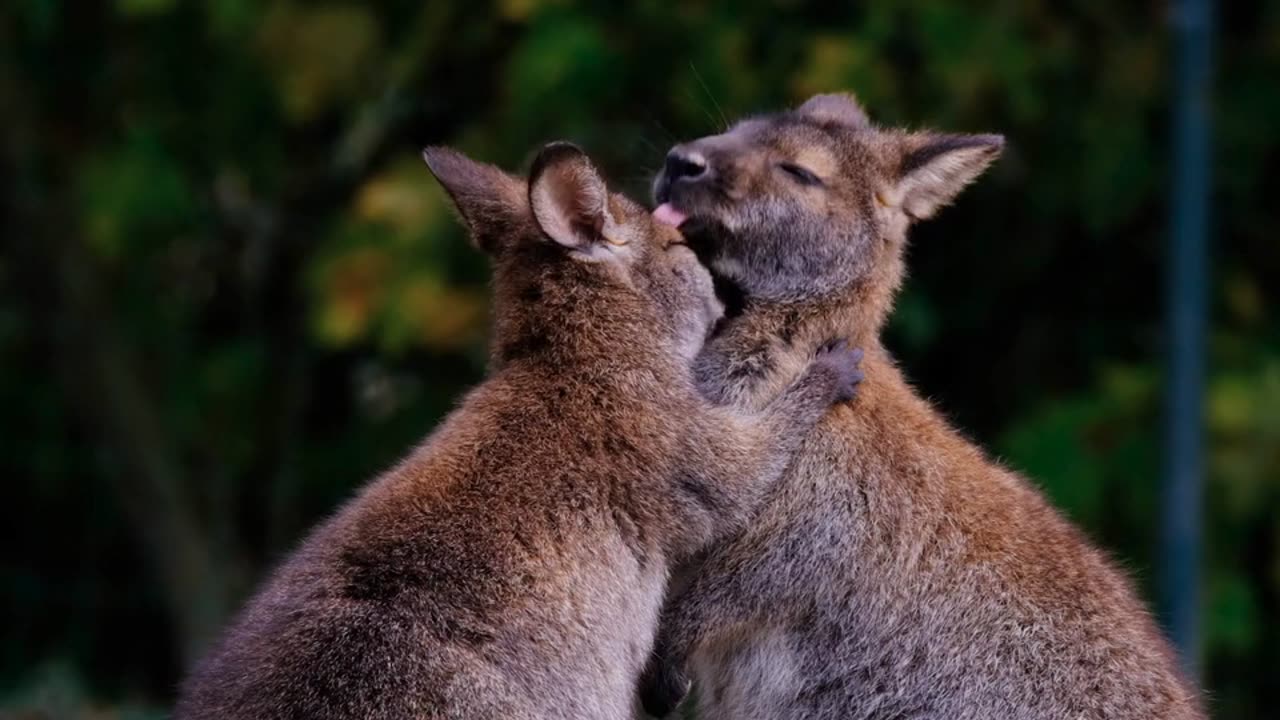Premium Only Content

Animal lover
Other words that can describe those who love animals more than humans include the nouns zoophilist, pet lover, pet person, and friend of animals or friend to animals. Since it's a bit less familiar, let's focus on one particular word: zoophilist.
Americans love their pets deeply, and many consider themselves to be animal lovers. But does getting more upset over animals than humans mean we love them more than people? Is there something wrong with us? In this article, we’ll take an in-depth look why it sometimes feels like we care more our pets more than our next-door neighbors.
Empathy, the ability to understand and share the feelings of others, is a complex emotion for us humans. This is the reason why it is important to understand the definition of empathy, which is “the ability to sense other people's emotions, coupled with the ability to imagine what someone else might be thinking or feeling.” Because of the constant media barrage of violence, death, and despair, we are becoming increasingly desensitized to the suffering of other humans. Social media is also believed to be a large contributor to the growing lack of empathy for others. So why is it so easy to generate empathy for suffering animals?
A recent study by criminologist Jack Levin reveals a possible answer. The study’s participants were asked to respond to a fake news story about a victim who was assaulted with a baseball bat, leaving them unconscious with several broken limbs. While the story was the same, it differed in one crucial detail; the identity of the victim changed. It was either a one-year-old baby, an adult human, a six-year-old dog, or a puppy. Respondents showed the same level of empathy for the baby, the puppy, and the adult dog, but significantly less for the adult human being.
This can also relate to the human-animal bond many of us feel, as they require our attention, help, and concern. The natural affection we feel for animals can be compared to the affection we feel for our children. We impulsively care for them and desire to help them because they are unable to easily help themselves. Our perception of adult humans is that they can easily speak up for their rights or defend themselves from danger.
But there is a basic irony about these feelings; the routine slaughter of animals for food (cattle, chickens, pigs, etc.) doesn't tend to faze most of us nearly as much. There are several psychological explanations as to why that might be.
First, we must account for the influence of pop culture. Take a moment to think about how many pet movies you likely watched as a kid. Many of these media portrayals endow dogs and cats with human qualities. They sometimes talk to each other using verbal words as people would, indulge in dreams for the future, and fall in love just like we do. Popular culture has drilled it into us over generations that our pets are just like humans, and primed many of us to be animal lovers from a young age.
-
 1:54:45
1:54:45
Twins Pod
4 hours agoMAGA P***star is HATED By Conservatives AND Leftists... | Twins Pod - Episode 49 - Brandi Love
31.7K29 -
 15:45
15:45
inspirePlay
1 hour agoLong Drive Showdown: Martin Borgmeier vs. 3 of the World’s Longest Female Golfers at 8,000+ Yards!
93 -
 1:01:19
1:01:19
PMG
20 hours agoWere the California Fires Intentional & Shocker - the Vax May Cause Long COVID
5711 -
 39:53
39:53
Bare Knuckle Fighting Championship
1 day agoBKFC KNUCKLEMANIA V PHILADELPHIA Weigh-In | LIVE!
873 -
 LIVE
LIVE
Scammer Payback
3 hours agoCalling Scammers Live
282 watching -
 1:10:38
1:10:38
Awaken With JP
4 hours agoJFK Files to be Released! Trump’s Boss Move - LIES Ep 75
47.2K38 -
 1:50:19
1:50:19
The Quartering
5 hours agoTrump NUKES The Deepstate, BANS Trans In Military & Terminates Dr. Fauci Protections!
89.2K63 -
 58:24
58:24
Uncommon Sense In Current Times
20 hours ago $0.28 earnedUnbreakable: How Jeff Younger Stands Firm Against Courts, Government, and Personal Attacks
14.7K -
 1:56:01
1:56:01
Nina Infinity
23 hours agoGOOD NEWS - Infinite Hope # 219 | Birthday Stream with Guests!
23.2K -
 15:08
15:08
Silver Dragons
1 day agoWhat Will the TRUMP Tariffs Will Do to Silver & Gold Price?
25.2K7